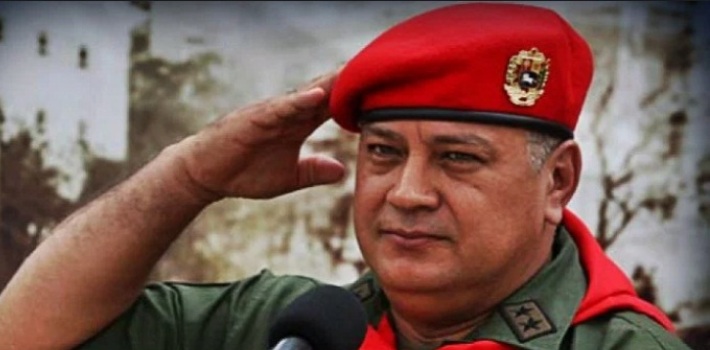
EspañolAsking for political change in Venezuela may well cost you your job. Public employees who decided to affix their signatures in late April to trigger a recall referendum against President Nicolás Maduro are now under threat.
The ruling party’s number two, Congressman Diosdado Cabello, believes that officials who have signed up to request the president’s ouster do not deserve a position inside public institutions, which is why he vowed on May 5 to review every single signature to target the traitorous.
- Read More: Maduro Revokes Venezuelan Congress’ Constitutional Powers
- Read More: Hungry Venezuelans Hunt Dogs, Cats, Pigeons as Food Runs Out
Cabello said that if the name of any state agency’s director shows up, he will have to fire him. However, he promised that he wouldn’t take action against low-ranking, “non-hierarchical” workers or employees.
“They can call me whatever they want, but if anyone has infiltrated the administration and is unmasked, they will have to leave. They will have to take responsibility just as we do,” Cabello told local media.
Independent Electoral Authority?
Cabello suggested that the ruling party would check the signatures “one by one,” even though the National Electoral Council (CNE), a supposedly independent government body, is in charge of validating the authenticity of the documents.
On April 29, President Maduro appointed a “special team” to review the forms that the opposition presented to the CNE. The team is headed by Jorge Rodríguez, one of the leaders of the ruling United Socialist Party of Venezuela (PSUV) and mayor of the Libertador municipality.
After the announcement, Rodríguez went to the CNE to request to be part of the team that verifies the recall referendum’s signatures. The institution’s president, Tibisay Lucena, welcomed him with open arms.
Rodriguez argued that while voting is secret, requesting a recall referendum is not, and that officials need to make sure that signatures are real.
He warned that any signature of army officers will be ruled invalid, because they are supposedly “forbidden to express their will” regarding the recall referendum.
Déjà Vu
The opposition believes that these moves and threatening statements by public officials seek to sow fear in the population so that they don’t sign up in the next process of signature collection.
And Venezuelans have reason to be afraid. In 2004, when the opposition pushed through a referendum to remove then President Hugo Chávez, the ruling party published online what became known as the Tascón List, the names of 2.4 million Venezuelans who had signed the petition.
The Tascón list was later used to discriminate against and deny these people jobs.
This time, the Venezuelan opposition surprised the government by vastly surpassing the 200,000 signatures needed to activate the referendum process against Maduro. In a few days, 1,850,000 Venezuelans throughout the whole country came out in support of the recall referendum.
On May 3, the Democratic Unity Roundtable (MUD) delivered 80 boxes containing 200,000 collection forms to the CNE.
The following day, CNE’s President Tibisay Lucena said that the verification process would take three more days, meaning that the institution should make an announcement on Monday, May 9.
Because the law requires that Venezuelans who signed up confirm that it is indeed their signature, Lucena must also inform where the electoral body centers will be installed to that effect.
Time Is Running Out
The opposition suspects that the CNE will present an excuse to stall the process, given previous delays in allowing the collection of signatures.
Henrique Capriles, a former presidential candidate and current governor of Miranda, threatened with massive demonstrations if the CNE does not issue a decision on Monday. “Either you give us the answer or we’ll go to the streets to find the answer. The constitution is on our side,” he said.
While the ruling party claims that there is not enough time to prepare for a referendum in 2016, Capriles argues that the CNE calendar allows for the popular consultation as early as October.
The opposition is in a hurry because if the recall referendum is carried out after January 10, 2017, there would be no presidential elections and the vice president — the Chavista Aristóbulo Isturiz — would have to complete Maduro’s term.
What Comes Next
After the verification of all signatures by the CNE, the electoral body must set up at least 200 centers where Venezuelans who signed the forms must go and verify their signatures.
Those who do not show up within five calendar days will not be counted toward the 200,000 registered voters needed to move on to the next phase.
However, another process of collecting signatures and verifying them must come before the CNE finally announces the date for the referendum.
For the second phase, the opposition will need to collect at least 4 million signatures or 20 percent of all registered voters.
 Versión Español
Versión Español













